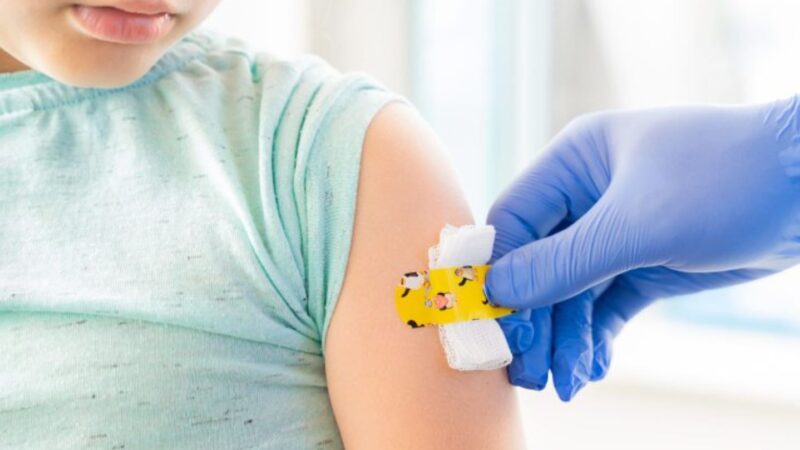A campaign encouraging young people to get up-to-date with their measles, mumps and rubella (MMR) vaccinations has led to a significant boost – with a near 20% rise in uptake in south west London.
The big increase is thanks to the help of extensive community outreach work – in south west London ‘street ambassadors’ have been out and about in areas of low uptake listening to concerns and explaining the benefits of the MMR jab.
South west London’s chief medical officer Dr John Byrne said that while great progress has been made, it’s important that people who are unvaccinated come forward as quickly as possible.
We’ve been having important conversations in the community – our ‘ambassadors’ have been out on the streets listening to concerns and sharing information – as a result thousands more young people in south west London and across the capital are now protected against measles, mumps and rubella.
South west London chief medical officer Dr John Byrne
Dr Byrne said: “It is hugely encouraging to see such significant increases in people coming forward for the MMR vaccine, including a near 20% rise for young children in south west London.
“We’ve been having important conversations in the community – our ‘ambassadors’ have been out on the streets listening to concerns and sharing information – as a result thousands more young people in south west London and across the capital are now protected against measles, mumps and rubella.
“However, cases continue to be reported across the country and measles is a very serious illness that is highly infectious, so it is absolutely crucial that everyone who is still unprotected comes forward to get their two doses as soon as possible by getting in touch with their GP practice – please don’t wait for measles to be on your doorstep.”
Catching measles can lead to life changing issues for adults and children, such as blindness, deafness and swelling of the brain (encephalitis). Measles can also have a serious impact on pregnant women, potentially leading to premature birth, low birth weight and still birth. The vaccine cannot be given during pregnancy.
Two doses of the MMR vaccine are needed for maximum life-long protection, with the first dose given around a child’s first birthday and the second dose given at around three years and four months.
However, anyone can catch up at any age on any missed doses and it’s never too late to protect yourself. The vaccine doses are typically given via a single injection into the muscle of the thigh or upper arm and are usually delivered with their other one year and preschool vaccinations.
Since January, the NHS, the UK Health Security Agency and local authorities have been urging millions of parents and carers to book their children in for missed MMR vaccinations to protect children and young people from becoming seriously unwell.
The latest official south west London figures for children aged up to 71 months show nearly 1,300 additional vaccinations were delivered in the first 12 weeks of this year compared to the same period last year.
In the first 12 weeks of 2023, 6,751 MMR vaccinations were given in south west London. In the same period this year, 8,047 MMR jabs were administered. That is a 19.2% increase.
South west London’s significant uptake rise is mirrored in new operational MMR vaccination figures released for London for five to 25-year-olds. These show that almost 10,000 more doses have been given to five to 25-year-olds this year (14,180) compared with 4,248 a year ago.
